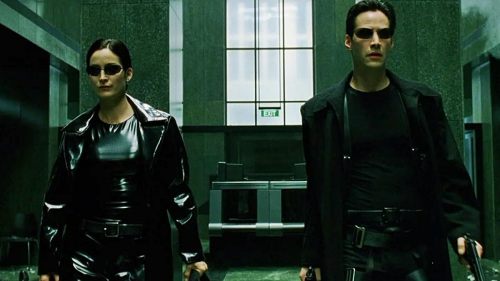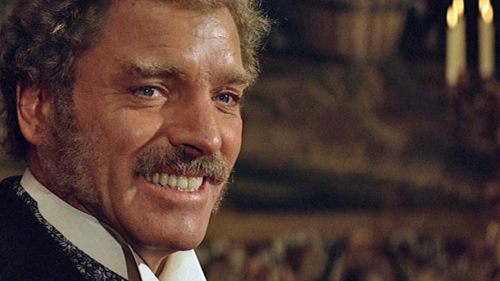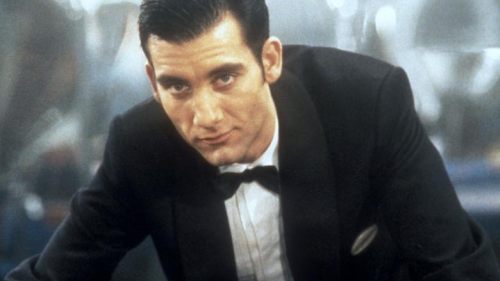A Case For Greatness: THE MATRIX RELOADED
Classics never die, but they seldom get replaced. Cinema is populated with enduring, venerated works of art that deservedly adorn list after list, but those lists are rarely updated, and less often expanded to include new, equally worthy entries. Organizations that give out annual awards are constrained not only by the limitations of formatting, but perspective - they can’t anticipate which film will survive the buzz of its initial acclaim or success and become part of the cultural firmament. And then there are just certain films or even genres that too infrequently receive the critical attention they deserve, are too obscure to break through to bigger audiences, or just aren’t taken seriously enough to merit consideration alongside the ones we “all” already know we love or respect. A Case For Greatness, this series, tries to argue for, and to champion, forgotten or underappreciated films in a variety of genres that may be worthy of being called “classics.”
It’s more or less impossible to overstate how much of a surprise - how much of a game-changer - The Matrix was when it was released on March 31, 1999. A cyberpunk action film from the directors of Bound was on literally no one’s radar except for producer Joel Silver, who enlisted Warner Bros. to bankroll one of the most ambitious and unique, and eventually, successful science fiction films in the history of the medium. But when The Matrix Reloaded was released four years later, it did tremendous business at the box office just like its predecessor, but I can think of few better examples of a film that delivered exactly what it promised - a bunch of intriguing but borderline hokey sci-fi concepts tethered to some mind-boggling action sequences - that somehow the world decided it didn’t want, or was no longer cool, or maybe had just had already reached its limit.
Sixteen years later, The Matrix Reloaded remains, I think, a not-quite equal to the original Matrix that has been unfairly dismissed thanks to the sheer awfulness of Matrix Revolutions, whose virtues may have seemed less apparent at the time but shine brighter than ever with the benefit of hindsight.
It’s entirely possible that the problem with the Matrix sequels - both of them - is that at the end of the first film, the Wachowskis’ hero achieves a level of power that obviates the need for physical confrontation, but then they told some five more hours of story where he beats the living hell out of God-knows-how-many opponents anyway. Nevertheless, Reloaded picks up fairly effortlessly where its predecessor left off, as Neo (Keanu Reeves) has assumed a position as Morpheus’ (Laurence Fishburne) lieutenant after effectively declaring war on the machines that seek to control mankind. In destroying Agent Smith (Hugo Weaving), Neo inadvertently liberated the program from the Matrix, allowing it to explore its world freely and absorb other programs, including Agents, who can help it face off one more time against the only force that might be stronger than it.
Unsurprisingly, this results in a showdown between Neo and several dozen of Smith’s clones, all determined to “absorb” his energy. (Less surprisingly, it’s preceded by a sex rave in Zion, the last remaining human city.) Like in the first film, there’s a lot of talk about fate and choice, this time driven by a revolving door of programs like the Merovingian (Lambert Wilson), his guardians, the Twins (Neil and Adrian Rayment), and Persephone (Monica Bellucci), the Merovingian’s wife, that alternately help and hinder the humans’ progress as they race to reach the source of the Matrix. Neo fights Seraph (Collin Chou), the Oracle’s (Gloria Foster) protector, to prove his identity; later, he takes on a handful of the Merovingian’s henchmen while Morpheus and his lover Trinity (Carrie-Anne Moss) fight the Twins and several Agents; and finally, another army of Smiths trying to prevent him from meeting The Architect (Helmut Bakaitis), the creator of the Matrix.
On a casting level, the Wachowskis were light years ahead of virtually every other filmmaker in Hollywood, creating an ensemble populated by complexly drawn people of color whose gender and sexuality was fluid or altogether wonderfully indeterminate; as silly as the sex rave seems in retrospect, there’s a whole lot going on in those shots of writhing bodies that isn’t heteronormative. Meanwhile, even if two white people (Reeves and Moss) are driving much of the heroism, their effort feels like a deliberate and important counterbalance to the monumental damage inflicted by The Architect, The Merovingian and Agent Smith, even as Fishburne’s Morpheus, Jada Pinkett-Smith’s Niobe, Harold Perrineau’s Link, and Randall Duk Kim’s Keymaster play pivotal roles in the rescue and redemption of the imperiled human race.
In terms of the filmmaking, specifically the action, the Burly Brawl - that fight between Neo and the Agent Smiths - is itself a bit of a technical marvel, creating an often believable showdown using a lot of CGI that may not quite hold up now but at the time felt pretty revolutionary, pun unintended. But I think that everything that happens from the beginning of chateau fight to the end of the freeway chase ranks among the best action ever choreographed; even if the early scenes somewhat replicate ideas explored in the first Matrix, they truly elevate and expand those ideas as Neo holds off the Merovingian’s foot soldiers, while Trinity and Morpheus race through a densely-populated freeway to escape a phalanx of adversaries. That the filmmakers literally constructed a mile and a half of freeway to choreograph the various stunts and crashes feels almost impossible to imagine today, but even augmented by CGI it feels more tangible and explosive than countless imitators that followed.
Finally, there are the film’s philosophical ideas, which admittedly sometimes feel jumbled but on a basic level of just plain existing in a $150 million blockbuster almost don’t need to make any more sense than they do. Neo, “The One,” is a part of the design of the Matrix engineered to offset the problems created by giving human beings an almost subconscious sense of choice. His very relationship with Trinity is itself a threat to the necessary objectivity of trading one life for many, saving humankind at the possible expense of the woman he loves. Of course, he is able to save Trinity’s life after she is shot - by reaching his hand inside her, removing a bullet and then massaging her heart - but then those abilities continue to manifest themselves in the real world as he saves his friends and colleagues from attacking machine hordes. The speeches are long and ornate, the rules fluid and malleable, and Neo’s role - his responsibility - is still too complex to sort out.
The real and truly big disappointment came months later upon the release of Matrix Revolutions, which did not sufficiently clarify these concepts or fulfill them dramatically. And to be fair, I suppose I can understand why all of this stuff may have felt repetitive, or just plain like gibberish, upon the film’s release four years after the first one. But the filmmaking remains peerlessly adept and dynamic, taking risks and creating scenarios that were never attempted before, and quite frankly, haven’t been successfully pulled off since. The Matrix Reloaded is, perhaps like many of the films in this series, not perfect. But it is a perfect reminder that masterpieces can be great or even transcendent only in parts, while the rest of it doesn’t quite cohere or contradicts or just plain lands on the screen with a dud. And in a movie that asks so many interesting and provocative questions, and whose execution is so skillful, it feels significant - and even essential - to make the choice to celebrate what works rather than condemn what doesn’t.



